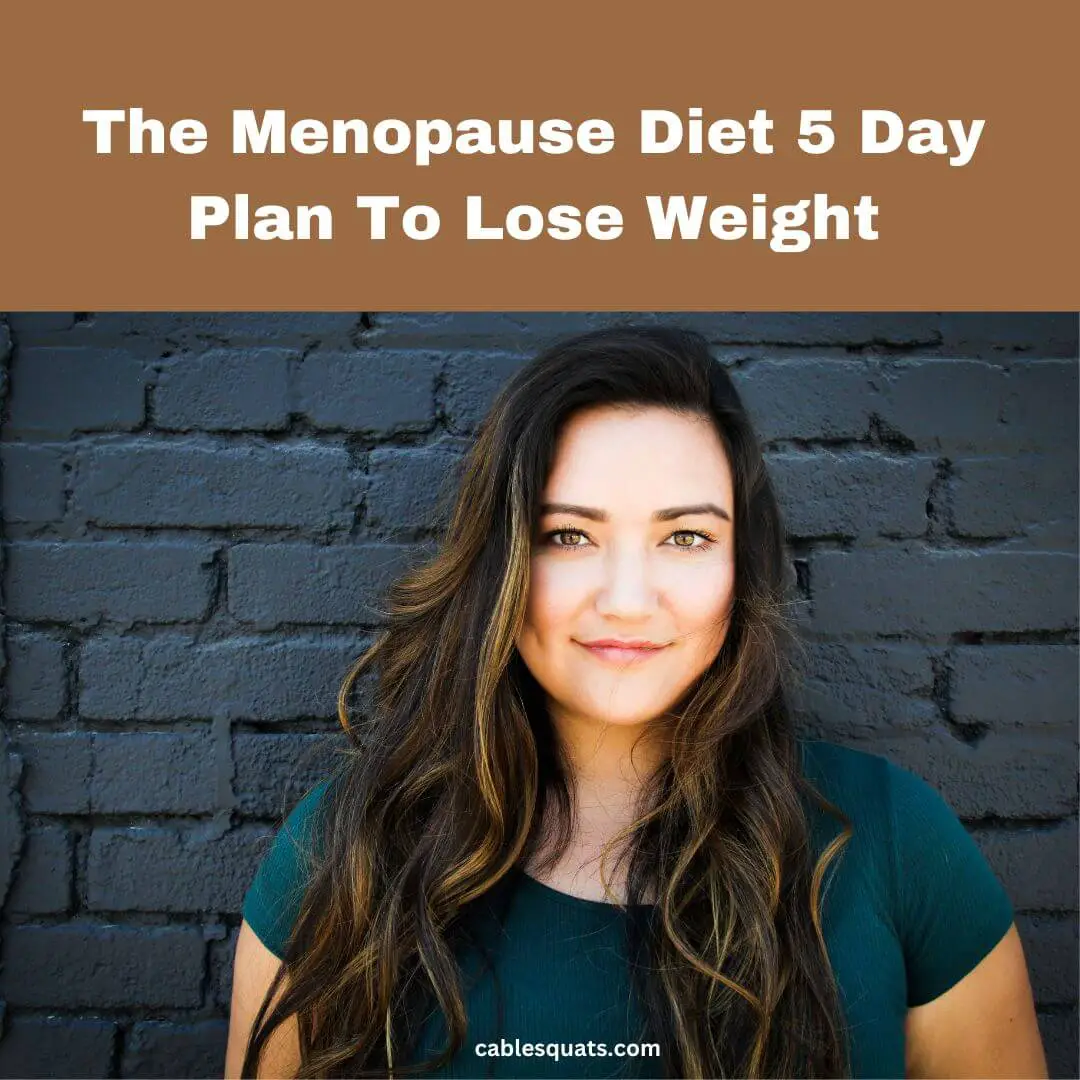Menopause is a natural stage in a woman’s life that brings about hormonal changes. One common challenge many women face during this time is weight gain. However, with a well-planned diet, it is possible to manage weight effectively. In this article, we will provide you with a 5-day diet plan specifically designed for menopausal women aiming to lose weight. By following this plan, you can promote a healthy lifestyle, manage weight, and support overall well-being during the menopausal transition.
Understanding Menopause and Weight Gain
During menopause, hormonal changes, specifically a decline in estrogen levels, can contribute to weight gain, especially around the abdomen. This weight gain can be attributed to factors such as a slower metabolism, decreased muscle mass, and lifestyle changes. However, with the right dietary choices, you can combat weight gain and maintain a healthy weight.
Importance of a Healthy Diet during Menopause
A healthy diet is crucial during menopause to support overall well-being and manage weight effectively. Focus on consuming nutrient-dense foods that provide essential vitamins, minerals, and antioxidants. Additionally, paying attention to portion sizes, staying hydrated, and incorporating regular physical activity are important components of a successful weight loss journey during menopause.
Day 1: Balanced Breakfast, Lunch, and Dinner
Start your 5-day menopause diet plan with a balanced approach. For breakfast, opt for a combination of whole grains, lean proteins, and fruits. For lunch, include a variety of vegetables, lean proteins, and healthy carbohydrates. Dinner should consist of a well-balanced meal with a focus on lean proteins, vegetables, and whole grains. Incorporate healthy snacks between meals to keep hunger at bay.
Day 2: Incorporating Whole Foods and Lean Proteins
On the second day, emphasize whole foods and lean proteins. Include foods such as quinoa, brown rice, legumes, lean poultry, fish, and tofu. These foods provide essential nutrients, are low in calories, and promote satiety. Fill your plate with colorful vegetables and incorporate a small portion of healthy carbohydrates to fuel your body effectively.
Day 3: Focus on Fiber-Rich Foods and Hydration
Fiber-rich foods are beneficial for menopausal women as they aid in digestion, promote feelings of fullness, and support weight management. Include foods such as fruits, vegetables, whole grains, and legumes in your meals. Additionally, stay hydrated by consuming an adequate amount of water throughout the day. Hydration supports overall health and can help control appetite.
Day 4: Including Healthy Fats and Antioxidant-Rich Foods
Healthy fats are an essential part of a balanced diet. Include foods like avocados, nuts, seeds, and olive oil. These fats provide satiety and support hormone production. Incorporate antioxidant-rich foods like berries, leafy greens, and colorful vegetables to protect against cellular damage and support overall health.
Day 5: Mindful Eating and Portion Control
On the final day of the diet plan, practice mindful eating and portion control. Pay attention to hunger and fullness cues, eat slowly, and savor each bite. Be mindful of portion sizes and avoid overeating. Opt for smaller plates and bowls to visually control portion sizes. Focus on enjoying the flavors and textures of your food.
Conclusion of The Menopause Diet 5 Day Plan To Lose Weight
Following a well-structured diet plan during menopause can help manage weight effectively and support overall well-being. The 5-day menopause diet plan outlined above emphasizes nutrient-dense foods, portion control, hydration, and mindful eating. Remember to incorporate regular physical activity and consult with a healthcare professional or registered dietitian for personalized guidance. Bookmark cablesquats website to read more such posts. You can also use our printable calendar templates to track your goals.

